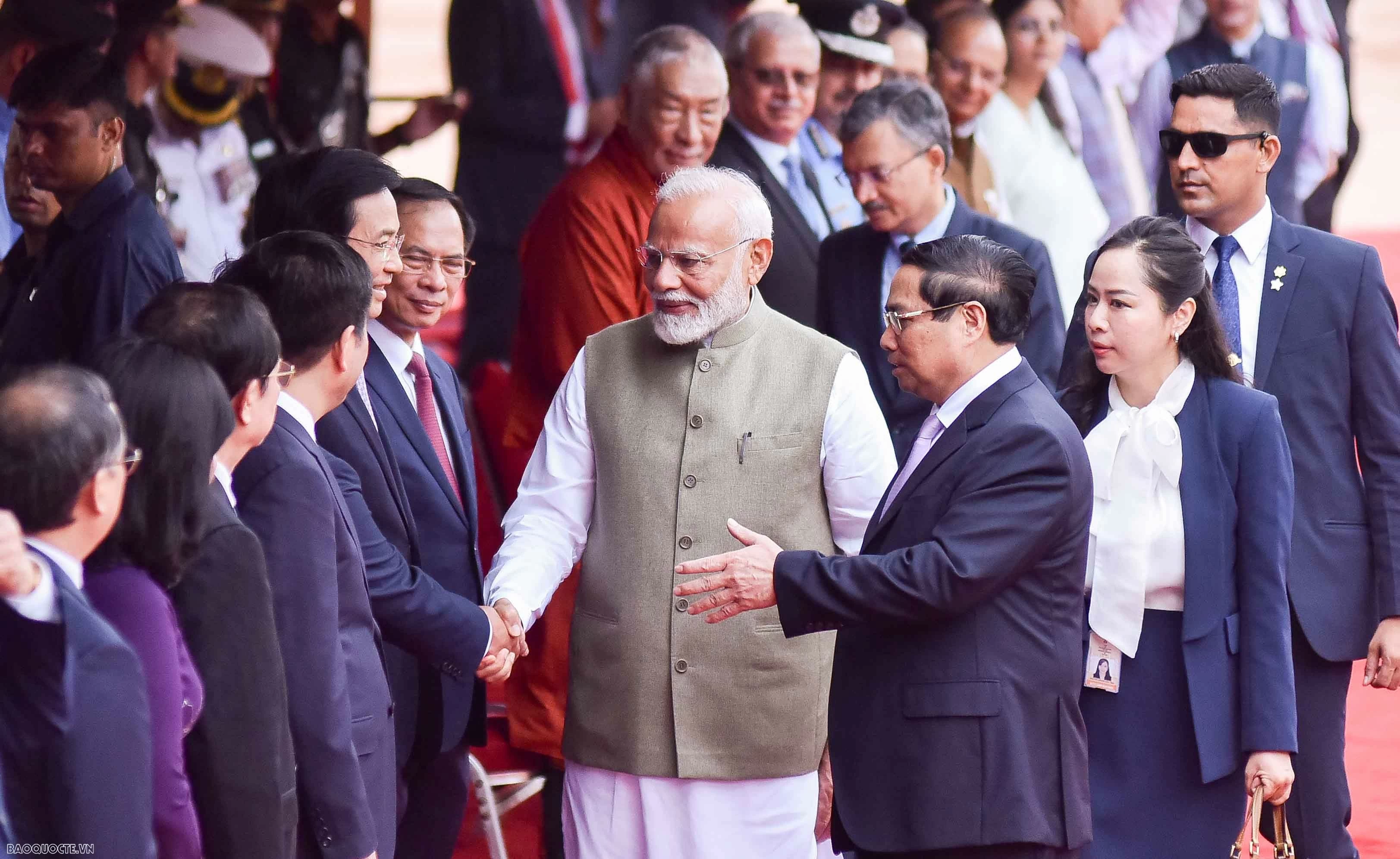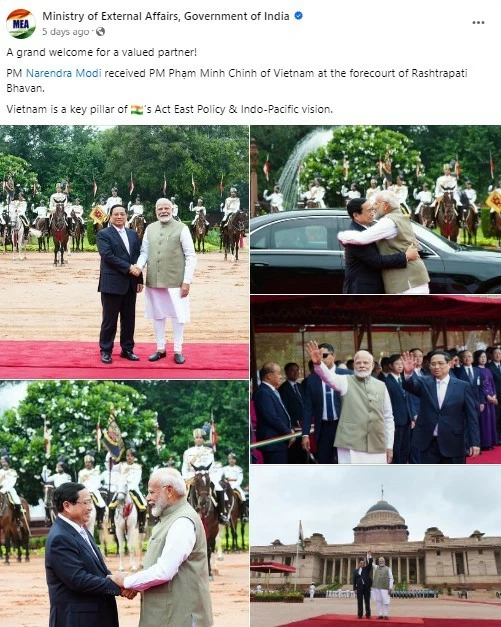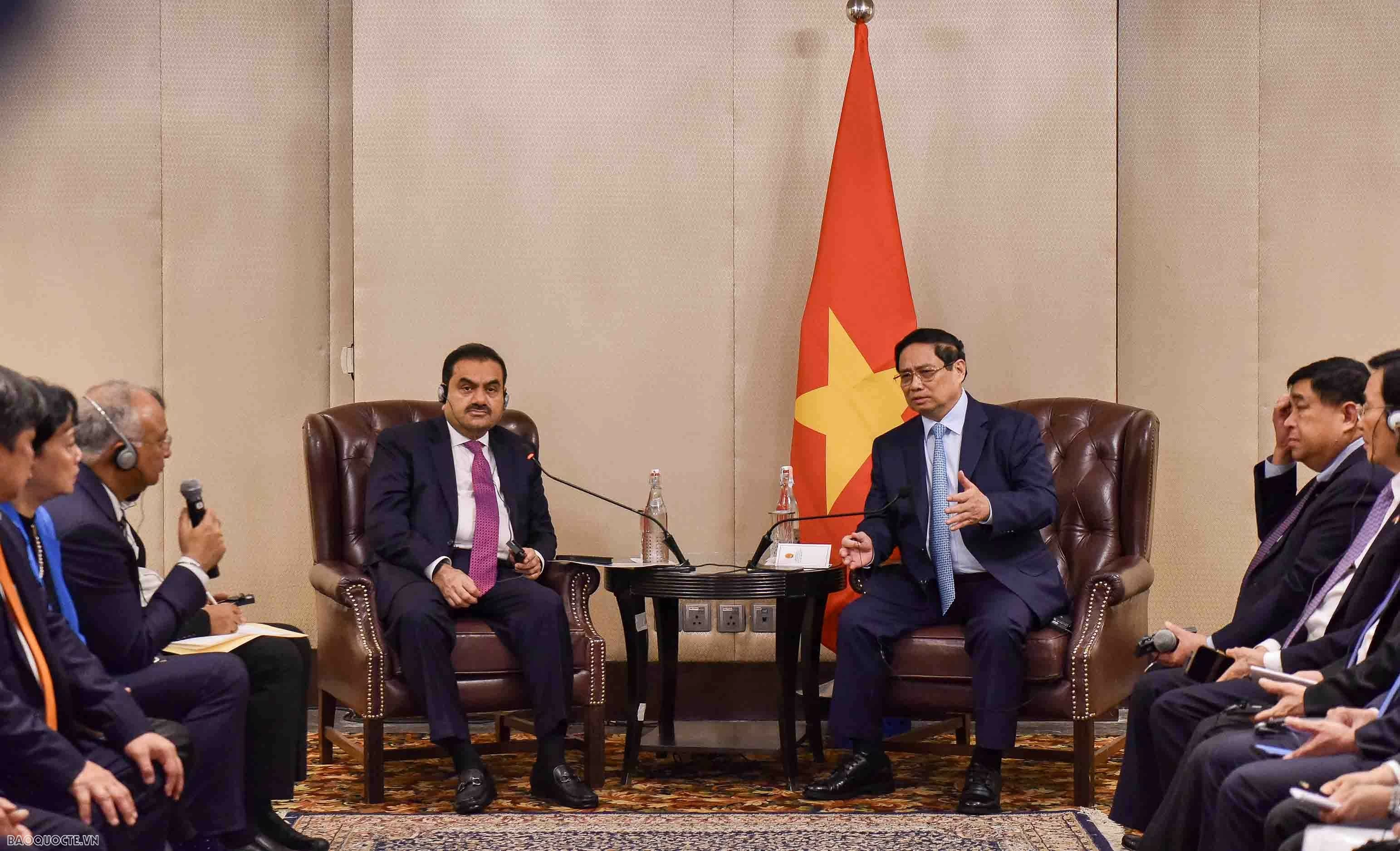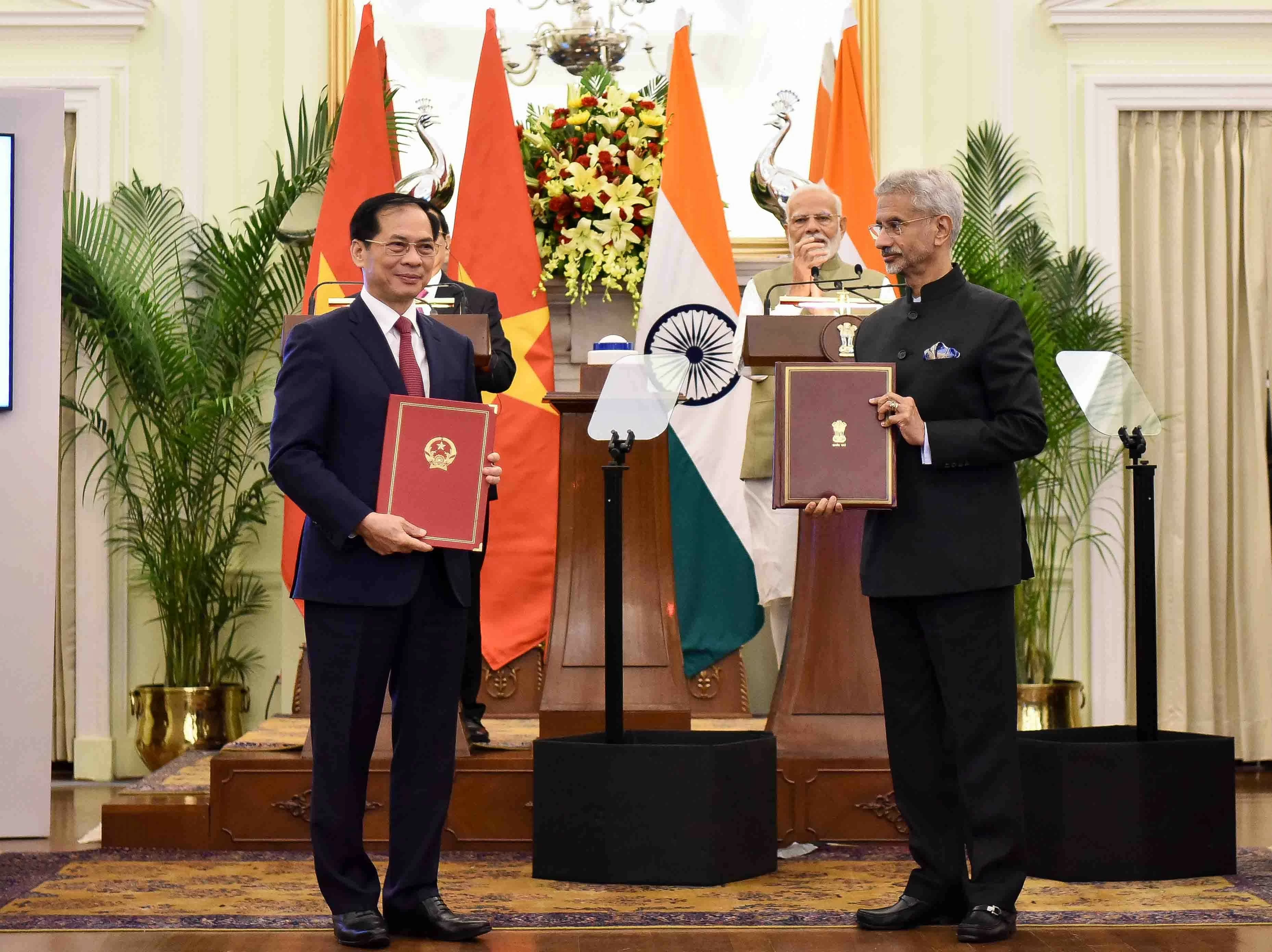
PM Pham Minh Chinh's visit to India has deep impact and special significance for both countries and the world: Scholar
Latest
In a world full of changes and overflowing with information, events, no matter how important, eventually settle and pass. There is a saying, "There are no permanent friends or permanent enemies, only permanent national interests!" That's life.
However, the Vietnam-India relationship and the state visit of Prime Minister Pham Minh Chinh from July 30 to August 1 is a particularly special event, evoking both universal and unique, comprehensive, and profound aspects of international relations.
 |
| Prime Minister Pham Minh Chinh is one of the first foreign leaders invited by Prime Minister Narendra Modi for a state visit immediately after his re-election for a third term. (Photo: WVR/Nguyen Hong) |
Firstly, history and tradition are the foundation for current and future relations. Vietnam and India are two cultures deeply rooted in national identity, with centuries of trade, cultural, religious, and people-to-people exchanges; selectively absorbing each other's and the world's cultural quintessence; sharing aspirations for prosperous national development with many similarities.
India is considered the first cradle of Buddhism, from where it spread to many countries, including Vietnam. The presence of Buddhist pagodas and Hindu temples across the country vividly represents the longstanding cultural exchange between the two cultures.
Both countries have vigorously fought against colonialism to achieve independence nearly simultaneously (Vietnam-1945, India-1947). In 1946, President Ho Chi Minh sent a congratulatory message to the first newly established government of free India. Prime Minister Jawaharlal Nehru was the first foreign leader to visit Vietnam after the liberation of Hanoi (October 1954).
President Ho Chi Minh and Indian leaders like Mahatma Gandhi and Jawaharlal Nehru laid the foundation for bilateral relations. Subsequent generations of leaders and the people of both countries have nurtured a continuously flourishing bilateral relationship.
India was one of Vietnam's first three Strategic Partners (2007) and both countries established a Comprehensive Strategic Partnership framework in 2016, marking historical milestones symbolizing comprehensive development in bilateral relations.
Practice shows that despite the complex changes in the world, Vietnam and India remain sincere, reliable, and steadfast friends, empathetic and supportive of each other throughout history.
In previous meetings and during Prime Minister Pham Minh Chinh's visit, the leaders of both countries affirmed that the historical and traditional relations with their excellent qualities between Vietnam and India are invaluable assets, foundations for sustainable development now and in the future.
 |
| The Indian Ministry of External Affairs posted a photo series of the welcome ceremony for Prime Minister Pham Minh Chinh hosted by Prime Minister Narendra Modi at the Presidential Palace. (Screenshot) |
Secondly, the unique aspects of the visit. This was the first visit of a Vietnamese Prime Minister to India since the establishment of the Comprehensive Strategic Partnership in 2016. Prime Minister Narendra Modi, freshly re-elected for a third term, extended one of the first state visit invitations to Prime Minister Pham Minh Chinh.
India, known as the most dynamic country in the G20 and the world's fifth-largest economy, is an important partner of many countries. Prime Minister Narendra Modi affirmed that Vietnam is an indispensable pillar in India's Act East policy. The two countries cherish, trust, and need each other. The visit occurred as both nations approached the 10-year anniversary of their Comprehensive Strategic Partnership (2026) and 55 years of diplomatic relations (2027).
The three-day visit included 25 rich activities, such as talks and meetings with the highest leaders of the host country; interactions with major conglomerates at the India-Vietnam Business Forum; and policy speeches at the Indian Council of World Affairs. Both sides issued a Joint Declaration to enhance the Comprehensive Strategic Partnership and signed nine documents in various fields like diplomacy, defense, finance, health, culture, tourism, human resource training, and an action plan for implementing the Comprehensive Strategic Partnership for 2024-2028.
Public opinion in both countries and internationally highly regarded the visit as comprehensive, profound, practical, and effective across various areas, aiming for strong, sustainable development. This included impressive figures such as bilateral trade reaching $20 billion; doubling bilateral investment, attracting tens of billions of dollars...
The Prime Minister of Vietnam was welcomed in India with the highest courtesy of a state visit. Images of the two leaders holding hands, raised high on the red carpet, during travels, and at meetings and signing ceremonies, deeply imprinted on the people of both countries and international friends. These are vivid symbols, transcending diplomatic formalities, demonstrating the warm, sincere, and close relationship between like-minded brothers and friends.
From this visit, the relationship between Vietnam and India truly enters a new, more substantive and comprehensive chapter with more opportunities, as assessed by Minister of Foreign Affairs Bui Thanh Son. The visit was indeed special in content and form, significantly meaningful for the people of both countries and the global community.
 |
| Prime Minister Pham Minh Chinh meets Mr. Gautam Adani, Chairman of Adani group - India's largest infrastructure and energy conglomerate. (Photo: WVR/Nguyen Hong) |
Thirdly, always finding new motivation for development. The world, the region, and each country are always in motion, in a complex interrelationship across multiple layers among nations and peoples. The new era demands new approaches. Tradition in relations, however positive, only matters when it is inherited and developed in the present and future.
With this spirit, the leaders of Vietnam and India focus on innovating traditional areas and opening new fields, new drivers, breakthroughs, suitable for contemporary trends and the significant potential between the two countries such as in humanitarian intelligence, science and technology, logistics infrastructure...
This is clearly reflected in the Joint Declaration, the signed documents, as well as the commitments and memorandums of top Vietnamese and Indian enterprises. Notably, the motto "five better": higher political-strategic trust; deeper defense-security cooperation; more effective, breakthrough economic, trade, and investment cooperation; more open cooperation in science and technology, innovation; and stronger, more practical cultural, tourist, and people-to-people exchanges.
This forms the basis for the people of both countries and international friends to expect a new phase of development for the Vietnam-India relationship with a new scale, in the coming times, aiming to achieve the strategic goals of each country on the occasion of the centennial celebrations of establishment and independence (2045, 2047).
 |
| Prime Minister Pham Minh Chinh and Prime Minister Narendra Modi witness the exchange of the Action Program for Comprehensive Strategic Partnership between Vietnam and India for 2024-2028 (Photo: WVR/Nguyen Hong) |
***
In the world, there are also long-standing historical and traditional relationships like that of Vietnam and India. But maintaining and developing continuous, sustainable relations without bends or "dark points" is rare.
Returning to the proposition at the beginning. It makes sense to say that friends and foes are not permanent, only national interests are permanent. But nothing is absolute. In the world, the interests of countries, at specific times, do not completely align and are influenced by many other relationships.
The challenge is to maximize similarities, minimize differences, with a spirit of understanding, empathy, and shared, mutually beneficial interests. Right during the visit, the Prime Ministers of both countries agreed to fundamentally resolve lingering issues in economic, trade, and investment cooperation.
With the trend of global integration, national interests must be placed within the common interests of the region and the world, harmonized with the legitimate interests of other countries and peoples. Only then can they truly be permanent.
In history and during the recent visit, the Vietnam-India relationship not only served the interests of the two countries but also contributed to the peace, friendship, cooperation, and development of the region and the world. The relationship between Vietnam and India can be considered a model in history, present, and future. Thus, significant events in bilateral relations will always leave a deep imprint in the hearts of the people, in the development achievements, and in the contributions of both countries to the world and the region.













